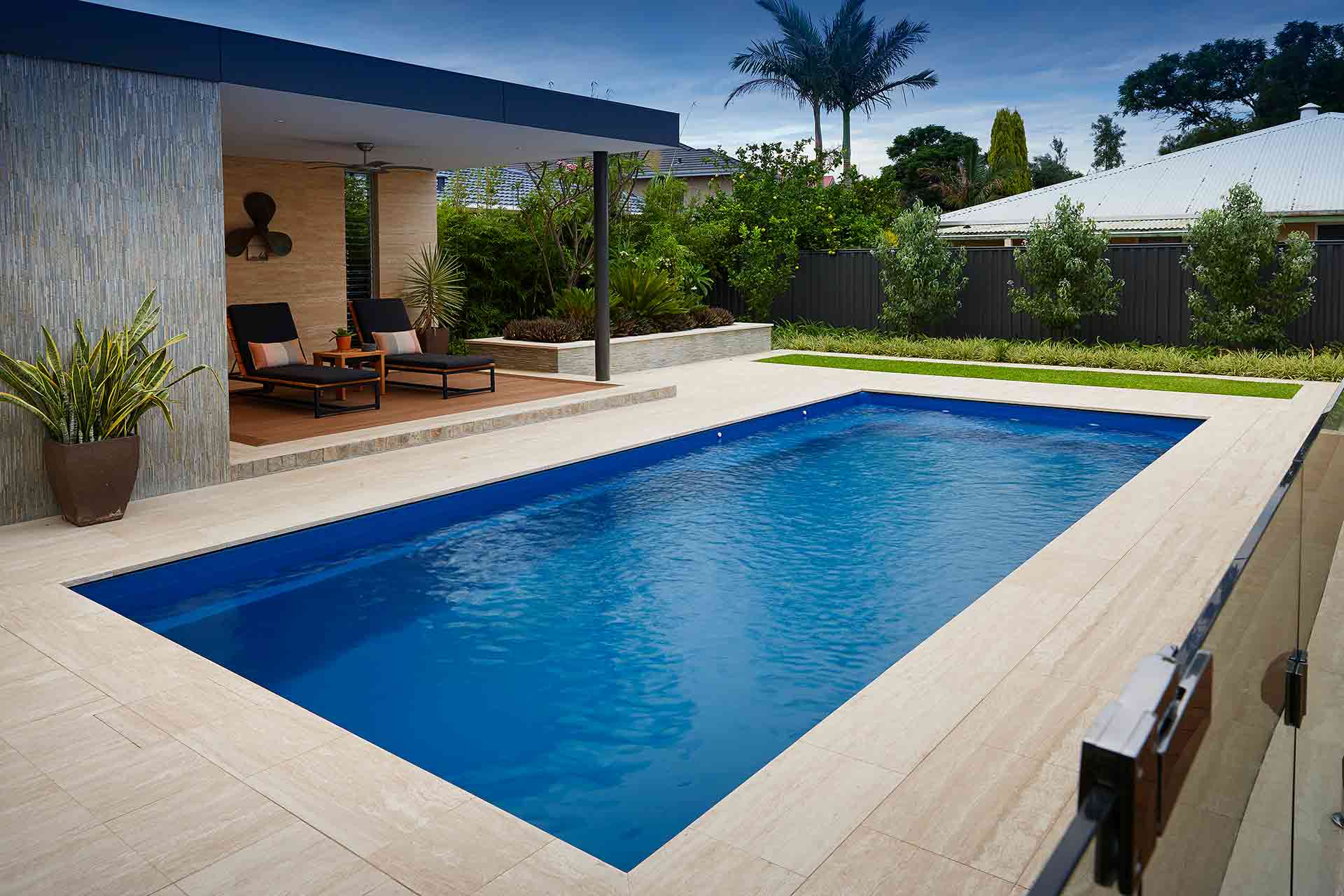Fibreglass Vs Concrete - Which Is Better And Why?
Building a swimming pool is a long-cherished dream for many house owners. Swimming pool building involves taking decisions on many factors like material, location, installation, finding pool builder etc. Deciding on the material of the swimming pool is a crucial decision. Traditional concrete has ceded ground to alternatives like fibreglass and vinyl. All these materials have their advantages and disadvantages.
There are people who swear by the benefits of fibreglass while some others may stick to concrete. If you are finding it difficult to choose between fibreglass and concrete for your pools then we give you a step by step comparison on all the factors involved.

1. Budget - Initial and long term
Fibreglass pools are less expensive to install. Their initial installation cost is lesser than concrete pools. They have fixed costs depending on the size and shape and do not exceed the budget. They cost less to maintain and you can even clean them yourself. Maintaining fibreglass pools does not involve addition of too many chemicals and heavy labor. Fibreglass pools come pre-fitted with steps and ledges at no extra cost. You can save a significant amount of money on chemicals in the long term.
Concrete pools cost more for the construction and subsequent maintenance. You will have to set aside more funds if you are planning to build a concrete pool. The cost may escalate due to the long time frame required for pool construction. You will have to pay for any additions like steps and ledges. You will also incur considerable expenditure on maintenance and resurfacing. Concrete pools require labour-intensive brushing once a week as part of their maintenance. You will have to hire labor or go for professional help for the brushing process. Algae forms quickly in the surface of a concrete pool. You will have to incur considerable expenditure on chemicals to keep the water clean.
2. Installation period
Fibreglass pools can be installed quickly. Fibreglass pools are manufactured in the factory from prefabricated molds. They are transported into your home and the fitting complete with patio and decking can be completed in around 3-5 weeks. You don’t have to bother with the intricate manufacturing process. You can enjoy your swim within some weeks of your decision to install a pool. The installation process is unaffected by temperature variation.
Concrete pools have to be built from scratch in your backyard. It takes around 3-6 months to construct a pool. During this period you have to put up with workers, equipment and a dug up backyard. Your dug up backyard may disrupt your life. It can prove to be more inconvenient if you have children in the family. Installation of a concrete pool can be delayed due to climate changes. A longer installation period makes the process vulnerable to cost escalation.
3. Personalization
Fibreglass pools have a certain restriction with regard to size and design. These restrictions are necessary since they are made in factories from molds and have to be transported to your home. Fibreglass pools have a maximum size of 16 feet width, 40 feet (ca. 12 m) length and 8.5 feet depth. These specifications are sufficient for a normal family pool. Fibreglass manufacturers offer a vast selection of sizes and shapes. You have customization option for finishes and water features.
Concrete offers unlimited options for personalization. The personalization increases the cost and time taken for installation. You can build concrete pools in any size or shape as per imagination. If you are looking for an extra deep pool for diving then you should opt for concrete pools.
4. Maintenance
Fibreglass pools require very light maintenance. Algae and dirt do not stick to the smooth surface of fibreglass pools. You can undertake maintenance of fibreglass pools yourself. Light brushing or vacuuming once a week is all it takes to dislodge dirt and dust from fibreglass pools. Fibreglass pools do not negatively impact water quality. You do not have to constantly add chemicals to maintain water quality. Checking the water chemistry levels once a week is sufficient for fibreglass pools.
You have to spend considerable time and effort to maintain concrete pools. Concrete pools have a rough surface which acts like a magnet to attract dirt and algae. Dislodging the dirt and algae requires intensive brushing with a steel brush at least once a week. Concrete is alkaline in nature and it increases the pH levels in the water. You have to constantly monitor the water chemistry levels and add hydrochloric acid daily to maintain water chemistry. If you do not maintain your concrete pool meticulously it can turn into a pond. Concrete pools also require acid washing and replastering every 10-15 years.

5. Surface finish
Fibreglass pools have a glossy surface which does not give you sore feet. The anti-slip texture of the steps and ledges are also smooth. Some pool manufacturers create visually appealing pool surfaces using the latest technology.
Concrete has a rough surface. You can get scratches and cuts if you play in the pool for a long time. You have to spend extensively on tiling to make the surface smooth.
6. Energy Expenditure
The fibreglass shell and liner are made of a material that does not absorb heat. Fibreglass pools heat quickly and retain the heat for a longer time. You do not have to add too many chemicals to maintain water chemistry or keep the water clean. This puts less load on the filtration system. Fibreglass pools are environment friendly due to the use of fewer chemicals and electricity.
Concrete pools tend to absorb heat. They require more energy to heat and retain the heat. Addition of more chemicals means that your filtration system has to work for a longer duration to disperse the chemicals properly. You can expect more energy bills regularly.
7. Effect on a salt-chlorine generator
Using salt chlorinator is a popular method for water purification. Fibreglass pools work well with salt chlorine generators. The salt has no impact on the shell of fibreglass pools.
The dissolved salt used by salt chlorine generators adversely impacts the plaster of a concrete pool. The salt reduces the lifespan of the interior plaster finish. Concrete pool builders discourage the use of salt chlorinators.
8. Durability
With advances in technology, fibreglass pools have become extremely durable. Fibreglass pools are built to withstand normal wear and tear. Fibreglass can resist movements in earth better as compared to concrete. Many manufacturers offer extended warranty on their fibreglass pools.
There is no doubt about it that the structure of concrete pools is extremely strong. But cracks can form in a concrete pool with the passage of time. The finishes may fade due to exposure to sunlight. Concrete pools will require renovation to fill cracks and reconstruct finishes.
There are plenty of fibreglass pool manufacturers. Take your time to research your options. Meet different manufacturers and compare prices and warranties offered by them. Even if the initial cost is high, make your purchase from a reputed manufacturer. A swimming pool is a permanent investment and renovating or replacing a pool can be tedious and lead to an unsatisfactory result.
A good pool builder will take you through all the options available for fibreglass pools and find one which fulfills your needs.


